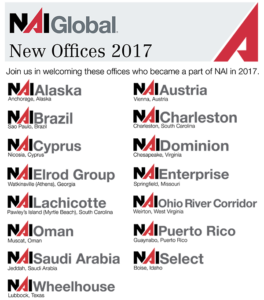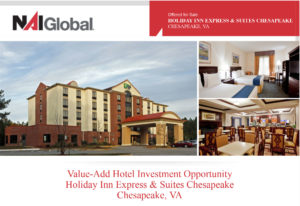Are Sovereign Wealth Funds Shifting Capital out of CRE?
For over a decade sovereign wealth funds (SWFs), like Norway’s Government Pension Fund Global (GPFG) and the Abu Dhabi Investment Authority (ADIA), have been among the biggest investors in the commercial real estate (CRE) market — striking deals that have shaped sectors from office and retail to hospitality and industrial.
According to a recent Bisnow article, however, 2024 might see these government-owned investment giants hit the brakes, as high interest rates continue to add to challenges in the dealmaking landscape.
Returns and allocations dropping
Bisnow quotes data from real estate capital advisory Hodes Weill, stating that SWFs are expected to cut allocations to real estate from 7.5% to 7.2% this year. For many the driving force behind those cuts is the combination of higher interest rates and lower returns.
Some of the largest entities, including Norway’s GPFG and Canada’s Public Sector Pension Investment Board (PSP Investments) saw double-digit negative returns in 2023. Others like Oxford, the real estate arm of the Ontario Municipal Employees Retirement System (OMERS), have cut allocations in addition to divesting around USD3.5 billion in industrial assets as well as “a number of large office buildings” since 2022.
Contrasting figures
But while the above might suggest a strong downward trajectory, it’s worth noting that different sources provide varying appraisals of the situation.
Quoting data from research firm Global SWF, Bisnow notes that “The amount [SWFs] spent on real estate fell 40% in 2023 to $32B,” adding however that: “The 26% of the funds’ overall spending made up by real estate is higher than the 20% figure the previous year.”
A closer look at Global SWF’s 2024 Annual Report shows that a large chunk of the amount invested in 2022 fell within the residential sector. 2023’s allocation to residential was much lower (dropping the overall figure), but the amounts spent on commercial sectors overall remains largely similar between years.
Meanwhile, research by the International Forum of Sovereign Wealth Funds (IFSWF) shows a slow but steady uptick in CRE investment since 2019. IFSWF states: “In 2023, sovereign wealth funds invested $14.8 billion in 39 real estate deals. These totals represent a significant increase from the $10.9 billion invested in 2022, marking the highest total value since 2017.”
Worth noting is that IFSWF’s total at USD14.8 billion is a lot lower than the numbers provided by Global SWF, likely due to differing criteria around which funds are included in each report.
Shifting sectors
As we’ve seen in CRE markets elsewhere, a key change shown in IFSWF’s data lies in levels of investment into specific subsectors. Data centers and logistics facilities continued to dominate SWF investment growth last year while co-working and mixed-use spaces saw drop-offs.
Other sectors, like hospitality, have held steady, largely driven by key investments from the Qatar Investment Authority (QIA) and Saudi Arabia’s Public Investment Fund’s (PIF) ongoing investment into the NEOM mega-project.
Ongoing interest in “tangible assets”
Taken together, the data from these sources seems to indicate continued interest from SWF’s in the opportunities presented by solid CRE investments. While the nature of those opportunities might change from year-to-year, the long-term fundamentals of the commercial property market are still attracting the attention of these mega-investors in 2024.
IFSWF sums up: “The resurgence of real estate and infrastructure investments, which comprised 40% of all sovereign wealth funds’ direct investments in 2023, underscores their growing appetite for tangible assets amid market uncertainties and inflationary pressures.”
SOCIAL: Brokers: How have large investment deals shaped the market in your area over the past year? And what impact has this had on overall dealmaking volume?










